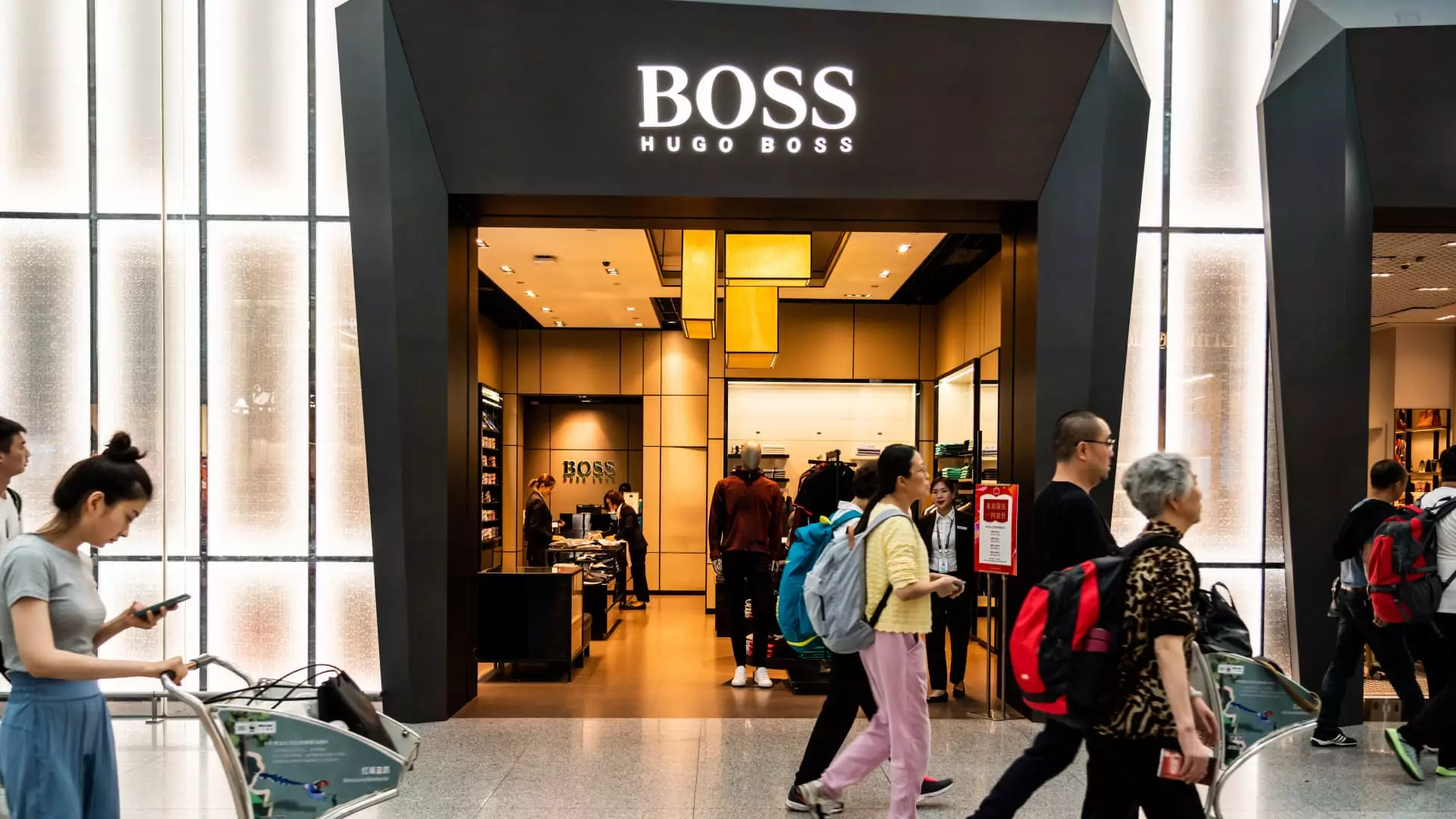Hugo Boss, a renowned German fashion house, faced a significant drop in its shares by up to 10% after revising its sales outlook. The company adjusted its full-year sales forecast to a range of up to 4.35 billion euros, down from the initial estimate of up to 4.45 billion euros. This downward revision was attributed to ongoing macroeconomic and geopolitical challenges, with a notable impact on markets like China and the U.K.
Following the announcement, Hugo Boss shares experienced a reduction of 8.8%, reflecting investor concerns about the company’s performance. CEO Daniel Grieder acknowledged the prevailing uncertainties in the global macroeconomic environment and their impact on the company’s operations. Despite the challenges, Grieder expressed confidence in Hugo Boss’ strategic approach of investing in its strong brands, BOSS and HUGO, to drive growth and enhance market share.
Hugo Boss reported a 1% decline in group sales for the second quarter, with a revenue of 1.02 billion euros. The decrease was primarily attributed to lower sales in Asia and Europe, leading to a 42% decrease in second-quarter operating profit compared to the previous year. The company cited softer sales trends and strategic investments as key contributing factors to the decline in profitability.
The challenges faced by Hugo Boss are reflective of broader issues impacting the luxury sector. High-end brands like Burberry and LVMH have also reported a slowdown in sales, indicating a global trend of reduced consumer spending on luxury goods. Burberry’s recent performance prompted a 16% drop in its shares, leading to a profit warning and strategic changes within the company. Similarly, Swiss luxury group Richemont reported minimal sales growth due to a decline in Chinese market demand.
The luxury sector’s struggle to regain momentum is partly attributed to weaker demand from Chinese consumers, a key demographic for luxury brands. The shift in Chinese consumer behavior, particularly in response to the pandemic, has had a significant impact on international luxury markets. Despite challenges in domestic spending, many Chinese shoppers are now resuming overseas purchases, indicating a potential shift back to pre-pandemic consumer habits.
Market analysts, such as Swetha Ramachandran from Artemis Fund Managers, suggest that the slowdown in Chinese consumer spending may be overstated. Ramachandran highlighted that a significant portion of luxury demand from Chinese consumers typically occurs outside mainland China. With travel restrictions easing, Chinese shoppers are once again prioritizing international destinations for their luxury purchases, leading to a resurgence in spending in key markets like Japan.
Hugo Boss’ sales decline and revised outlook underscore the challenges faced by the luxury sector amidst evolving consumer behaviors and global economic uncertainties. By strategically leveraging its brand strength and adapting to changing market dynamics, Hugo Boss aims to navigate these challenges and return to sustainable growth in the future.

Leave a Reply